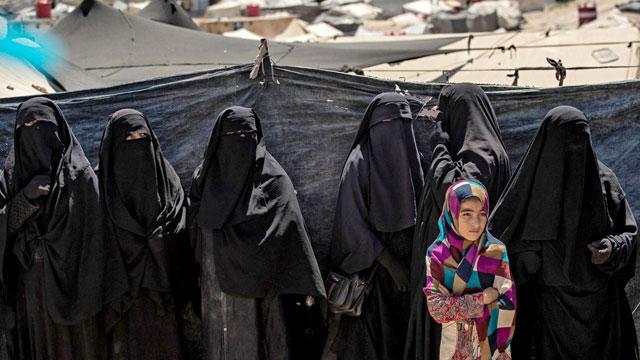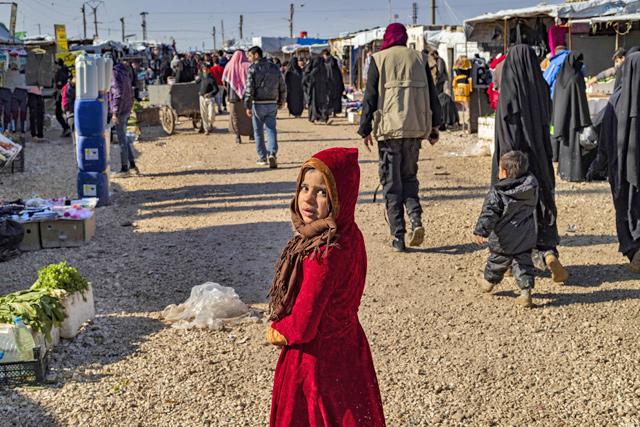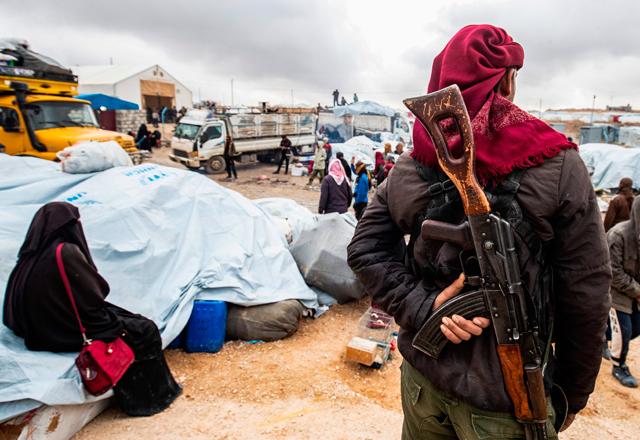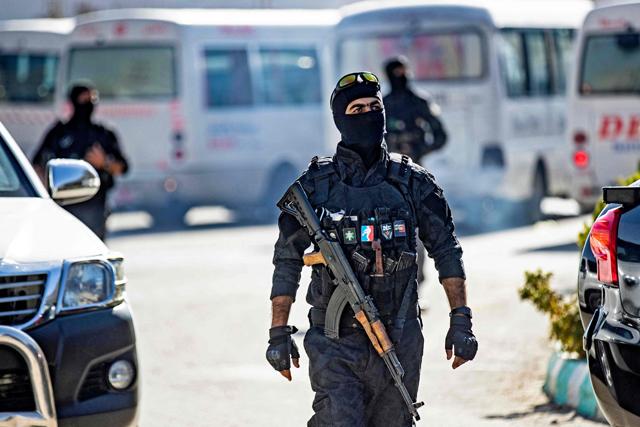You are here
Syria Kurds transfer some Daesh-linked families from camp
By AFP - Sep 09,2020 - Last updated at Sep 09,2020

A girl stands in a line of women to receive aid at the Kurdish-run Al Hol camp, in northeast Syria for families of Daesh fighters (AFP photo)
QAMISHLI, Syria — Syrian Kurds have started to transfer the "least radical" foreign women and their children linked to the Daesh group out of an overcrowded camp in northeast Syria to begin rehabilitation, an official said on Tuesday.
So far 76 families have been moved since July from Al Hol to the Roj camp at their request after showing remorse over their ties to the terrorist group, Kurdish official Sheikhmous Ahmed told AFP.
He did not give their nationalities, but Kurdish authorities say foreigners in Al Hol hail from around 50 countries.
After years of spearheading the fight against Daesh with backing from a US-led international coalition, Syria’s Kurds hold thousands of foreigners suspected of supporting the extremist group in their custody.
These include alleged fighters in jails, but also thousands more women and children related to them in displacement camps — many in the sprawling tent city of Al Hol.
Aid groups have repeatedly deplored living conditions in the camp where more than half of its 65,000 inhabitants are under the age of five, and Kurdish authorities reported the first coronavirus case among residents in late August.
“The Roj camp has been expanded in coordination with the United Nations... and the international coalition to transfer foreign Daesh children and women after they asked to leave Al Hol,” Ahmed said.
They are the “least radical” and “ready to be rehabilitated”, he added. “They have asked to return to their countries and reintegrate into society, and have shown remorse.”
He said 395 families were expected to be moved from Al Hol to Roj in total, where they would live in their own individual tent and where the face veil worn by radical Daesh followers is not allowed.
Local officials have reported several incidents of Daesh followers attacking guards or aid workers in Al Hol in recent months, or attempting to escape.
Western countries have been largely reluctant to repatriate their Daesh-linked nationals held in northeast Syria, though some have brought home women and children on a case-by-case basis.
Daesh terrorists declared a “caliphate” in large swathes of Syria and neighbouring Iraq in 2014, implementing their brutal interpretation of religion on millions under their rule.
But various campaigns against them in both countries whittled away at that proto-state, before Kurdish-led forces expelled them from their last patch of territory last year in Syria’s far east.
Related Articles
AL HOL CAMP, Syria — Kurdish authorities said they transferred 21 orphans from a squalid displacement camp in northeast Syria on Saturday, i
AL HOL CAMP, Syria — More than 500 Syrians, some related to alleged DAESH group members, quit the overcrowded Kurdish-run camp of Al Hol in
QAMISHLI, Syria — Syria's semi-autonomous Kurdish administration handed Tajikistan 146 women and children related to Daesh group jihadists,














